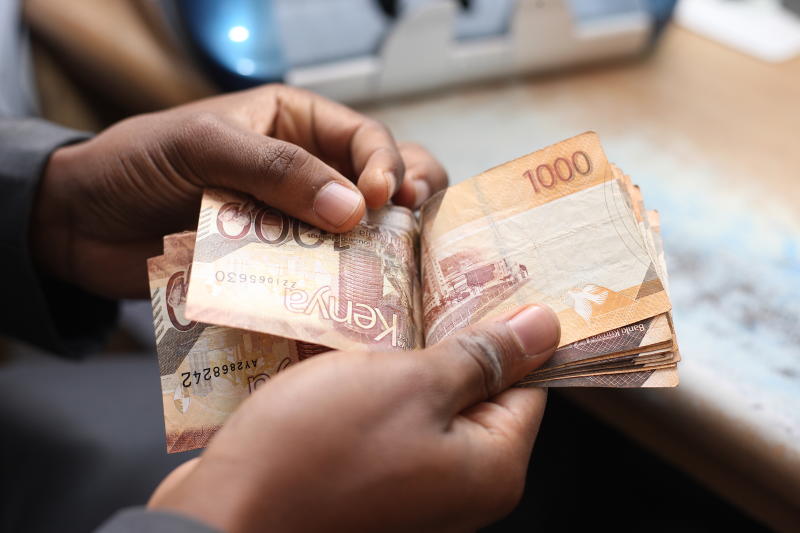Kenya’s financial services sector is one of the most vibrant in Africa, with money remittance playing a crucial role in facilitating international financial flows. For businesses and individuals interested in joining this lucrative sector, obtaining a license to operate as a Money Remittance Provider (MRP) is an essential first step.
The Central Bank of Kenya (CBK) is responsible for licensing and regulating MRPs under the Central Bank of Kenya Act and Money Remittance Regulations. This guide outlines the detailed process of registering a money remittance company in Kenya.
What is a Money Remittance Provider?
Money Remittance Providers are entities authorized to facilitate the transfer of funds both domestically and internationally. These services are indispensable for the growing diaspora community, businesses, and individuals who rely on efficient and secure money transfers.
Step-by-Step Guide to Registering a Money Remittance Company in Kenya
Step 1: Approval of Business Name
Before setting up your company, you must:
- Contact the Central Bank of Kenya: Schedule a preliminary meeting with CBK to understand licensing requirements and expectations.
- Reserve Business Names: Propose and reserve at least three names with the Registrar of Companies, ensuring they contain terms like “money remittance” or “money transfer.”
- Submit Names to CBK: Share your proposed names with CBK for approval before incorporating your company.
Step 2: Submit an Application for a License
To apply for a money remittance license, follow these steps:
a) Complete the Application Form
Fill out Form CBK/MRB/1, which must include:
- A certified copy of the Certificate of Incorporation.
- A certified copy of the Personal Identification Number (PIN) certificate.
- A certified copy of the Memorandum and Articles of Association showing a minimum paid-up capital of Ksh 10 million (to increase to Ksh 20 million within a year).
- Notification of your registered place of business, including branches or outlets.
- Payment of a non-refundable application fee of Ksh 20,000 via banker’s cheque or RTGS.
b) Evidence of Core Capital
Provide proof of a minimum core capital of Ksh 10 million and the ability to increase it to Ksh 20 million. This evidence can include:
- Bank statements from a licensed bank or microfinance institution.
- Government of Kenya Treasury Bills or Bonds.
c) Feasibility Study and Business Plan
Submit a comprehensive business plan covering:
- Executive Summary
- Governance structure and ownership
- Market analysis
- Three-year financial projections
- Business continuity plans
d) Fit and Proper Forms
All shareholders with at least 10% ownership and directors must complete the Fit and Proper Forms (FORM/CBK/MRB/2). Supporting documents include:
- Academic and professional certificates
- Source of funds
- Credit reports from a licensed credit reference bureau
- Certified copies of identification documents
Step 3: Approval for Foreign Companies
Foreign entities looking to establish a money remittance business in Kenya must provide:
- A board resolution authorizing investment in Kenya.
- Historical background of the company.
- A signed declaration to comply with Kenyan laws.
- List of countries of operation and corresponding regulatory authorities.
Step 4: Receive a Letter of Intent
If CBK finds your application satisfactory, you will receive a Letter of Intent, granting you conditional approval. Next steps include:
- Payment of a license fee of Ksh 100,000.
- Securing a bond or insurance worth Ksh 5 million or 1% of projected annual business volume.
- Preparation of premises to meet CBK standards.
Step 5: Final Approval and License Issuance
Upon meeting all conditions set in the Letter of Intent, CBK will conduct due diligence and may issue the final license. This license allows you to officially commence operations as a Money Remittance Provider.
Key Requirements for Registration
- Minimum Capital: Ksh 10 million, increasing to Ksh 20 million within one year.
- Application Fee: Ksh 20,000.
- License Fee: Ksh 100,000.
- Security Deposit: Surety bond or irrevocable letter of credit worth Ksh 5 million.
- Comprehensive Governance Framework: Including a well-documented business continuity plan and management information systems.
Why Register a Money Remittance Company in Kenya?
- Strategic Location: Kenya is a gateway to East Africa, making it a hub for financial transactions.
- Growing Diaspora Remittances: Remittances from the Kenyan diaspora have reached record highs, surpassing $4 billion in 2022.
- Regulatory Support: CBK provides a clear framework and guidance for new entrants.
Challenges and Opportunities
Challenges:
- High startup capital requirements.
- Stringent compliance measures.
- Competition from established players like Safaricom’s M-Pesa and Airtel Money.
Opportunities:
- Growing demand for international remittance services.
- Advancements in digital and mobile money technologies.
- Expanding partnerships with global financial service providers.
Frequently Asked Questions
1. How long does the registration process take?
The duration varies based on how quickly the applicant meets CBK’s requirements. On average, the process can take 3-6 months.
2. Can foreign investors own a money remittance company in Kenya?
Yes, foreign investors can establish a subsidiary in Kenya, provided they meet all CBK requirements.
3. Is there a limit to the number of licenses CBK issues?
No, CBK does not limit the number of licenses but ensures all applicants meet the regulatory standards.
4. What happens if a company fails to meet the minimum capital requirement within a year?
Failure to meet the capital requirement may result in license revocation or additional penalties.
Contacts for Assistance
- Central Bank of Kenya
- Address: Haile Selassie Avenue, Nairobi
- Phone: +254 20 2861000
- Email: comms@centralbank.go.ke





